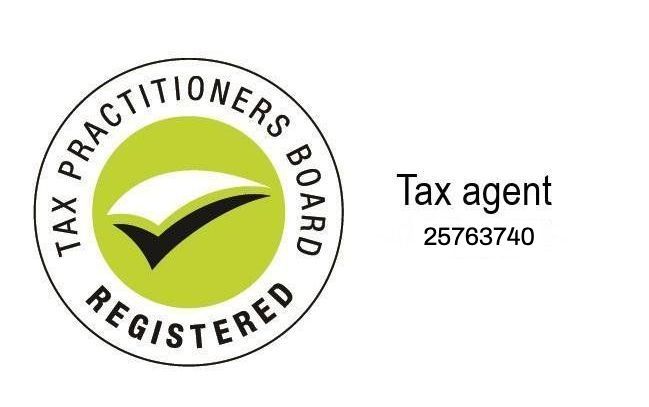My Business Feels Like it's Just a Job
My Business Feels Like it's Just a Job
Feeling like your business is just a job is a common experience for many entrepreneurs. The daily grind can sometimes overshadow the initial excitement and passion you had when starting out. Below are some reasons why you might feel this way and suggestions for re-energising your entrepreneurial spirit.

1. Burnout
Running a business can be exhausting, leading to burnout. Here’s how to manage it:
- Take Regular Breaks: Schedule regular downtime to recharge your energy levels. This could be a short daily break, a weekend off, or a longer vacation. Stepping away from work can provide a fresh perspective and renewed energy. Consider using a time management tool to ensure you take regular breaks throughout your day.
- Prioritise Self-Care: Engage in activities that promote your physical and mental well-being, such as exercise, hobbies, and spending time with loved ones. Prioritising sleep, nutrition, and relaxation helps maintain your enthusiasm and resilience. Try integrating mindfulness practices like meditation or yoga to reduce stress and improve focus.
- Set Boundaries: Establish clear boundaries between work and personal time. Make sure you disconnect from work after business hours to avoid burnout. Encourage a culture of work-life balance within your team as well.
2. Routine and Monotony
Repetitive tasks and routine operations can make your business feel like a regular job. To combat this:
- Use D.A.D - Delegate, Automate, Delete:
Implement the D.A.D method. Delegate tasks that others can handle, automate repetitive processes to save time, and delete activities that no longer add value to your business. This approach helps you manage your workload more efficiently and keeps you focused on what truly matters.
- Focus on Strategic Growth: Redirect your energy towards strategic planning, innovation, and growth opportunities. This might involve exploring new markets, developing new products or services, or improving your business processes. Consider setting aside specific times each week for strategic thinking and brainstorming sessions.
- Introduce Variety: Break up the monotony by varying your daily tasks and trying new approaches to your work. Engage in professional development opportunities or attend industry conferences to gain fresh insights and inspiration.
3. Lack of Vision
Losing sight of your long-term goals and vision can make the daily grind feel purposeless. To refocus:
- Revisit Your Vision: Reflect on why you started your business and what you aim to achieve. Write down your vision and refer to it regularly to keep it top of mind. Create a vision board or a mission statement that you can display in your workspace.
- Set New Goals: Establish new, inspiring goals that align with your vision. Break these goals down into actionable steps and track your progress. This can reignite your passion and provide a clear direction. Regularly review and adjust your goals to stay aligned with your evolving vision.
- Engage Your Team: Share your vision and goals with your team to foster a sense of collective purpose. Involve them in goal-setting processes to ensure everyone is aligned and motivated towards common objectives.
4. Micromanagement
Handling every detail yourself can be draining. To alleviate this:
- Trust Your Team: Delegate responsibilities to capable team members. Trust their abilities and give them the autonomy to make decisions. This empowers your team and frees up your time. Provide training and resources to ensure your team is well-prepared for their roles.
- Focus on Strategy: Concentrate on the strategic aspects of your business, such as setting long-term goals, building partnerships, and steering the company’s direction. This allows you to move away from day-to-day operations. Schedule regular strategic planning sessions to stay focused on the big picture.
- Encourage Initiative: Foster a culture where team members feel encouraged to take initiative and propose new ideas. This not only reduces your workload but also promotes innovation and engagement within your team.
5. Stress and Pressure
Constant stress and pressure to succeed can overshadow the enjoyment of running your own business. To manage this:
- Practice Mindfulness: Engage in mindfulness practices such as meditation, deep breathing, or yoga. These practices help you stay present and reduce anxiety, allowing you to approach challenges with a calm mindset. Consider using mindfulness apps or attending workshops to enhance your practice.
- Relaxation Techniques: Incorporate relaxation techniques into your routine, such as taking short breaks, listening to music, or spending time in nature. These activities can help you unwind and recharge. Create a designated relaxation space in your office where you can take a breather when needed.
- Prioritise Tasks: Use prioritisation techniques like the Eisenhower Matrix to manage your tasks effectively. Focus on high-impact activities and delegate or eliminate low-priority tasks.
6. Financial Concerns
Worrying about finances can turn your passion project into a source of anxiety. To address this:
- Develop a Financial Plan: Create a solid financial plan that includes budgeting, forecasting, and cash flow management. This plan should outline your financial goals, income sources, and expenses. Regularly review and update your financial plan to stay on track.
- Consult with Accountants: Consult with accountants, like the team at THN & Samios Partners, to ensure your business is on stable financial footing. We can provide insights and strategies to manage your finances effectively.
- Monitor Financial Health: Use financial management software to track your business’s financial health in real-time. This can help you make informed decisions and identify potential issues early.
7. Isolation
Running a business can be lonely. To build a supportive network:
- Engage with Other Entrepreneurs: Connect with other business owners through networking events, workshops, or online communities. Sharing experiences and gaining insights from peers can be incredibly valuable. Join industry-specific associations or local business groups to expand your network.
- Seek Mentorship: Find a mentor who can provide guidance, support, and advice. A mentor can help you navigate challenges, make informed decisions, and stay motivated. Consider joining mentorship programs or reaching out to industry leaders for mentorship opportunities.
- Join a Community: Participate in local business groups or online forums. Being part of a community provides a sense of belonging and access to resources, support, and new ideas. Engage in community activities and volunteer opportunities to build relationships and contribute to your local business ecosystem.
Re-energising your business and reigniting your passion involves addressing these underlying causes. At THN & Samios Partners, we understand the challenges that come with running a business, and we’re here to help. Whether it’s financial management, strategic growth, or just a friendly chat, the team at THN & Samios Partners are committed to your success.












